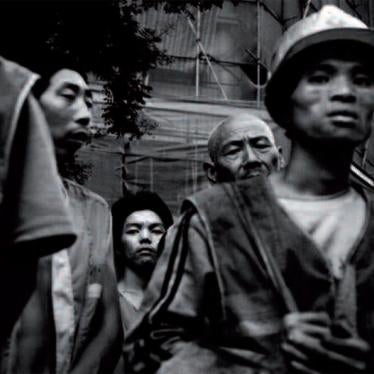(New York) - The Beijing municipal government's plan to relocate up to one million migrant workers from the city's central Chaoyang district by the end of 2010 puts those migrants at high risk of forced evictions and demolitions, Human Rights Watch said today. Prior forced evictions in the period before the Olympics were marked by an absence of due process and inadequate compensation.
On March 25, 2010, Chinese state media announced that the government would relocate between 150,000 and one million migrants from Chaoyang district. The government plans to demolish 40 to 70 district villages with a high density of migrant residents. The demolitions and relocations, one state media report said, are intended to "improve the population structure" and attract "more civilized" residents to Chaoyang district.
"The Beijing government sounds as if it is more interested in social engineering than it is in upholding the law," said Sophie Richardson, Asia advocacy director at Human Rights Watch. "The only appropriate action is to defend openly those migrants' rights to be consulted and compensated for their displacement."
Chinese law stipulates that those who are to be relocated are entitled to consultation and compensation, as well as due process. These obligations are similarly required by international human rights law. The United Nations body that interprets the International Covenant on Economic, Social, and Cultural Rights (ICESCR), which China ratified in 2001, considers forced eviction to be incompatible with that treaty.
Although state media reported that the municipal government would not force migrants to leave Chaoyang district, such evictions and relocations are increasingly common across China.
In Bejiing, forced evictions and demolitions as the government prepared for the 2008 Olympic Games resulted in the relocation of thousands of residents from areas in the city designated for Olympics-related facilities and infrastructure. Legal redress for such evictions under China's highly politicized judiciary is extremely difficult, and persistent efforts by evictees to secure adequate compensation can result in harassment and intimidation by security forces.
In August 2008, Beijing Public Security Bureau authorities sentenced Wu Dianyuan, 79, and Wang Xiuying, 77, to one year of "re-education through labor" (RTL), a form of administrative detention, after they applied for permission to protest inadequate compensation for their demolished homes at special "protest zones" established by the Beijing authorities during the period of the 2008 Beijing Olympics. The authorities did not permit any such protests to occur in those zones. Wu and Wang's RTL sentence was later rescinded, but the two women told the Washington Post in March 2009 that they remained under close police monitoring and said that police surveillance cameras had been installed outside their residences.
The case of Ni Yulan, a 48-year-old lawyer who has spent more than a decade defending the rights of forcibly evicted residents, highlights the abuses that forced evictions and demolitions have inflicted on Beijing residents. On April 15, 2008, more than a dozen workers and police knocked down the wall surrounding Ni's house in Qianzheng hutong, in the central Xicheng district of Beijing. Her husband, Dong Jiqin, said that when Ni tried to protect her home, she was hit on the head with a brick and dragged to the ground by one of the demolition workers. Police detained Ni and accused her of assaulting a demolition worker. In December 2008, in a 2 ½-hour, closed-door trial, a Beijing court sentenced Ni to a two-year prison term for "obstructing official duties."
Migrants are particularly vulnerable to abuses related to forced evictions and demolitions due to the institutionalized discrimination of China's official household registration, or hukou, system. The hukou system, which links citizens' ability to access government services to their birthplace, systematically deprives China's estimated 150 million migrant workers of social welfare protection such as the unemployment, medical, and education benefits that are guaranteed to registered urban residents.
The Chinese government has repeatedly stated that it plans to eliminate the hukou system eventually, but has failed to provide any timetable. In Premier Wen Jiabao's annual Work Report, presented at the annual meeting of the National People's Congress (NPC) in early March, he indicated that the government was only considering unspecified "reform" of the hukou system rather than outright abolition.
Chinese citizens who publicly criticize the abuses of the hukou system do so at their own risk. An unprecedented joint editorial on March 1 by 13 Chinese metropolitan newspapers on the eve of the NPC made a plaintive plea for hukou abolition. The editorial expressed the hope that "our many citizens, whether they are rooted in the north or south without dividing them into urban and rural, will all have the same rights to employment, medical treatment, elderly care, education, and freedom of movement." Those words resulted in official retribution for the journalists who initiated the editorial. Those targeted included Zhang Hong, who was removed from his post as Economic Observer deputy editor in early March for his role as a co-writer of the editorial.
"Migrants have provided the muscle behind China's three decades of spectacular economic growth, yet they remain vulnerable and marginalized thanks to the institutionalized discrimination of the hukou system," Richardson said. "The Chinese government has an ideal opportunity to prove its rhetoric about improving the lives of China's migrant population by ensuring their rights, and doing so in the heart of Bejiing."







